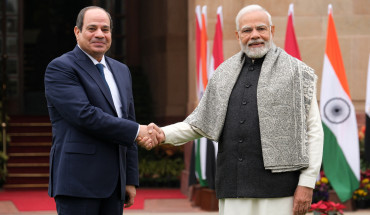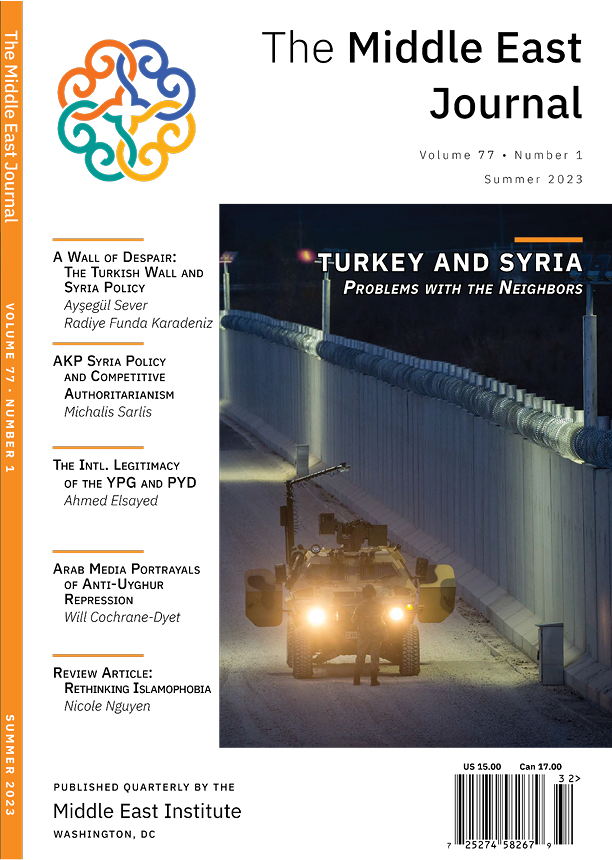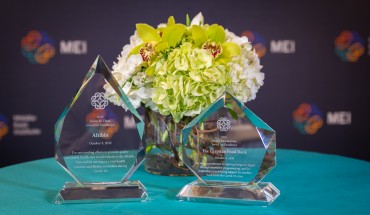For years, analysts and diplomats alike have argued that Israel’s ever-expanding settlement enterprise in the occupied West Bank and East Jerusalem amounted to a form of de facto annexation, as well as a direct threat to a two-state solution. Since coming to power, the far-right government of Israeli Prime Minister Benjamin Netanyahu has accelerated settlement expansion across the Occupied Territories at an unprecedented rate, including the approval of over 20,000 settlement housing units, more than any previous year on record. Moreover, the Netanyahu government has put in place new measures that transfer key authorities over the West Bank from Israeli military to civilian authorities, a move many legal scholars regard as a step toward de jure annexation. The Middle East Institute is pleased to invite you to join a special webinar to discuss the evolving annexation crisis in the Occupied Territories with a panel of experts from the U.S. and the region.
Speakers
Wesam Ahmad
Center for Applied International Law, Al-Haq
Aaron David Miller
Senior Fellow, Carnegie Endowment for International Peace
Dahlia Scheindlin
Policy Fellow, The Century Foundation
Michael Sfard
Human Rights Lawyer, Michael Sfard Law Firm
Khaled Elgindy, moderator
Senior Fellow; Director, Program on Palestine and Palestinian-Israeli Affairs, Middle East Institute
Key Takeaways
- According to Wesam Ahmad, the current far-right Israeli government under the leadership of Prime Minister Benjamin Netanyahu cannot be detached from the “broader enterprise of Israeli settler colonialism.” As part of this enterprise, Israel argues that it can annex Palestinian land without the Palestinian people, but this is an impossibility. “Land is the main basis upon which annexation is being perpetuated and the people are paying the price.”
- Panelist Aaron David Miller argues that concepts such as Israeli occupation and annexation of Palestinian territory have disappeared from the lexicon of U.S. policymakers. They have not made a reappearance and will likely not reappear, certainly under the Biden administration, because of domestic political considerations and the partisanization of the U.S.-Israel relationship.
- Dahlia Scheindlin notes that the percentage of Israelis who now identify as rightwing has grown to over 60% and that the current Israeli social environment has delegitimized the concept of peace. Ordinary Israelis do not think about occupation often, while the far-right Israeli government has entrenched the occupation into the law. Indeed, “Jews alone have the right to national self determination in all of the land of Israel'' was written into the coalition agreement that presently governs Israeli settlement policy.
- Michael Sfard contends that the ongoing transfer of power over the Israeli occupation from military to civilian hands is “huge,” as it has taken power away from the military commander and vested it in a civilian apparatus, i.e. de facto to de jure annexation. The far-right Israeli settler minister Bezalel Smotrich has become “the new governor of the West Bank,” and his portfolio includes land policy, allocation and expropriations. Sfard recommends that the international community respond to de jure annexation with sanctions and the non-recognition of settlement products.
Additional Resources
Wesam Ahmad, Center for Applied International Law, Al-Haq
- “To resolve the Palestinian question we need to end colonialism,” Al Jazeera (7/13/20)
- “Trump’s Colonial Solution to the Question of Palestine Threatens the Foundations of International Law,” Al Haq (5/5/20)
Aaron David Miller, Senior Fellow, Carnegie Endowment for International Peace
- "We Should Not Be Surprised by Israeli Annexation,” Carnegie (6/11/20)
- "What Annexation Would Really Mean for Middle East Peace,” Foreign Affairs (6/30/20)
Dahlia Scheindlin, Policy Fellow, The Century Foundation
- “Israel’s Annexation of the West Bank Has Already Begun,” Foreign Affairs (6/9/23)
- “International Responses to Annexation: Lessons for Israel from Other Conflicts,” Mitvim (12/29
- “Israeli annexation and the future of Palestine,” Brookings (6/29/20)
- "The Global Problem with Israeli Annexation,” TCF (6/18/20)
- “Creeping Israeli Annexation,” Arab Center Washington DC (7/20/23)
Michael Sfard, Israeli human rights lawyer
- “Israel Is Officially Annexing the West Bank,” Foreign Policy (6/8/23)
- “Israel and Annexation by Lawfare,” New York Review of Books (4/10/22)
- “Yes, It’s Israeli Apartheid. Even Without Annexation,” Haaretz (7/9/20)
- “Israeli Legal Expert Michael Sfard Explains Occupation and Annexation,” J Street (7/6/21)
- “Fighting de facto annexation through Israel’s legal system: challenges and prospects,” Canadian Friends of Peace Now (10/5/21)
Detailed Speaker Biographies
Wesam Ahmad is the head of the Center for Applied International Law at Al-Haq, where he has been working as a human rights advocate since 2006, focusing on the area of business and human rights within the context of the Palestinian struggle for the right to self-determination.
Khaled Elgindy is a senior fellow at the Middle East Institute where he also directs MEI’s Program on Palestine and Israeli-Palestinian Affairs. He is the author of the newly-released book, Blind Spot: America and the Palestinians, from Balfour to Trump, published by Brookings Institution Press in April 2019. Elgindy previously served as a fellow in the Foreign Policy program at the Brookings Institution from 2010 through 2018. Prior to arriving at Brookings, he served as an adviser to the Palestinian leadership in Ramallah on permanent status negotiations with Israel from 2004 to 2009, and was a key participant in the Annapolis negotiations of 2007-08. Elgindy is also an adjunct instructor in Arab Studies at Georgetown University.
Aaron David Miller is a senior fellow at the Carnegie Endowment for International Peace, focusing on U.S. foreign policy. From 1978 to 2003, Miller served at the State Department as an historian, analyst, negotiator and advisor to Republican and Democratic secretaries of state. At the State Department, he helped formulate U.S. policy on the Middle East and the Arab-Israel peace process, most recently as the senior advisor for Arab-Israeli negotiations. He also served as the deputy special Middle East coordinator for Arab-Israeli negotiations, senior member of the State Department’s policy planning staff, in the Bureau of Intelligence and Research and in the office of the historian.
Dahlia Scheindlin is a political scientist, a public opinion expert and a political consultant. She has advised nine national election campaigns in Israel since 1999 and has worked in fifteen other countries. Her research focuses on the Israeli-Palestinian conflict, foreign policy, democracy, human and civil rights, political analysis and comparative conflict analysis. Scheindlin has regional expertise in the Balkans and Eastern Europe, post-conflict societies and transitional democracies. She is a policy fellow at Century International, a regular columnist at Haaretz (English) and a global affairs analyst on the BBC television show, Context. She is a co-founder of +972 Magazine and has co-hosted podcasts including the Tel Aviv Review of Books and Election Overdose.
Michael Sfard is an Israeli human rights lawyer specializing in international human rights law and the laws of war with a special emphasis on the law of belligerent occupation and a non-resident fellow with Democracy for the Arab World Now (DAWN). He serves as the legal adviser to several Israeli human rights and humanitarian organizations as well as peace groups, among them: Yesh Din, Breaking the Silence and Peace Now. He also represents Palestinian communities and Israeli and Palestinian activists and advises international human rights and humanitarian NGOs. Sfard frequently publishes opinion pieces in the Israeli and international press. Sfard serves as commissioner in the International Commission of Jurists (ICJ) and in 2013 was awarded the Emille Grintzweig Human Rights Award.
Photo by Mamoun Wazwaz/Xinhua via Getty Images











